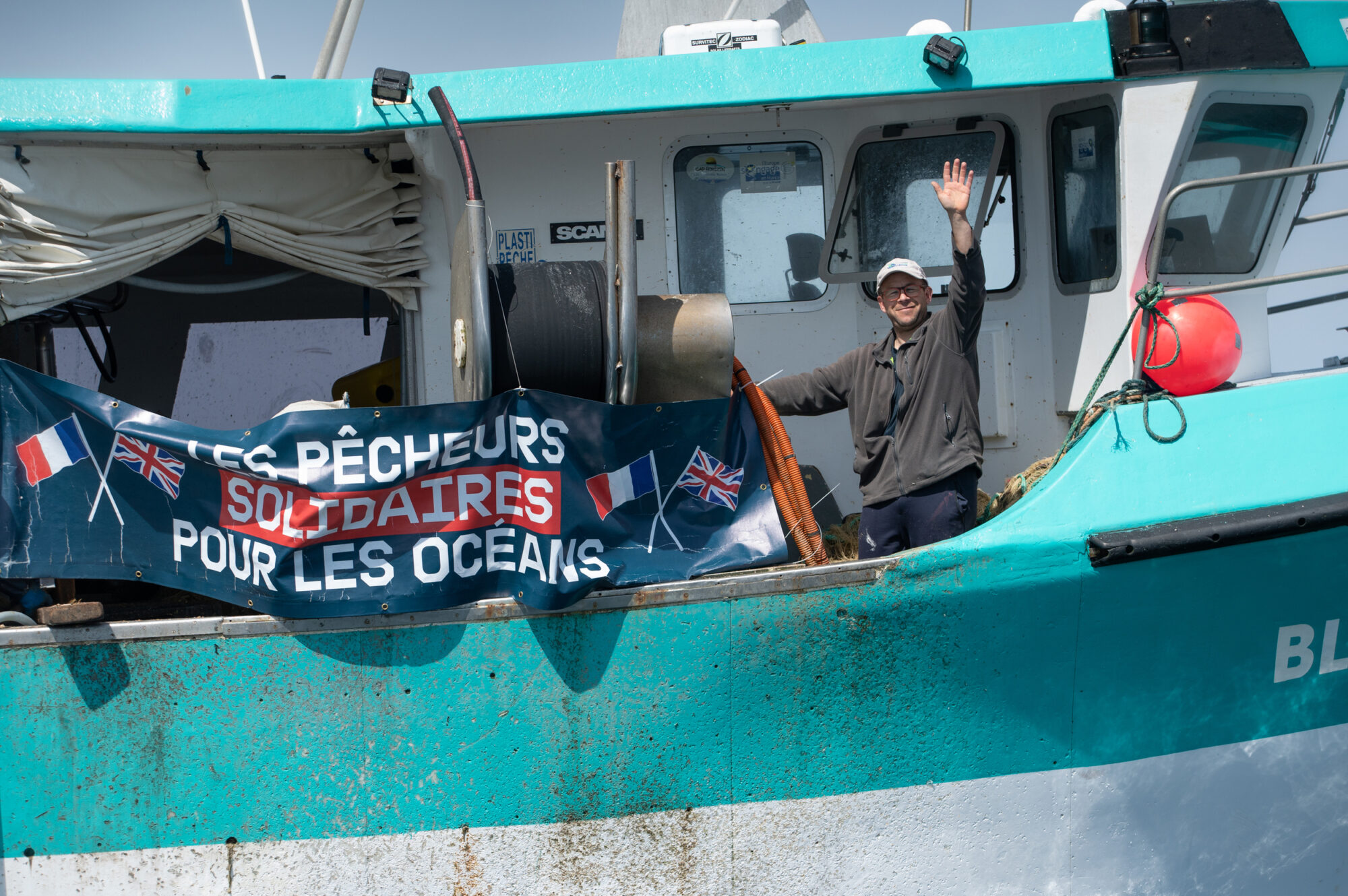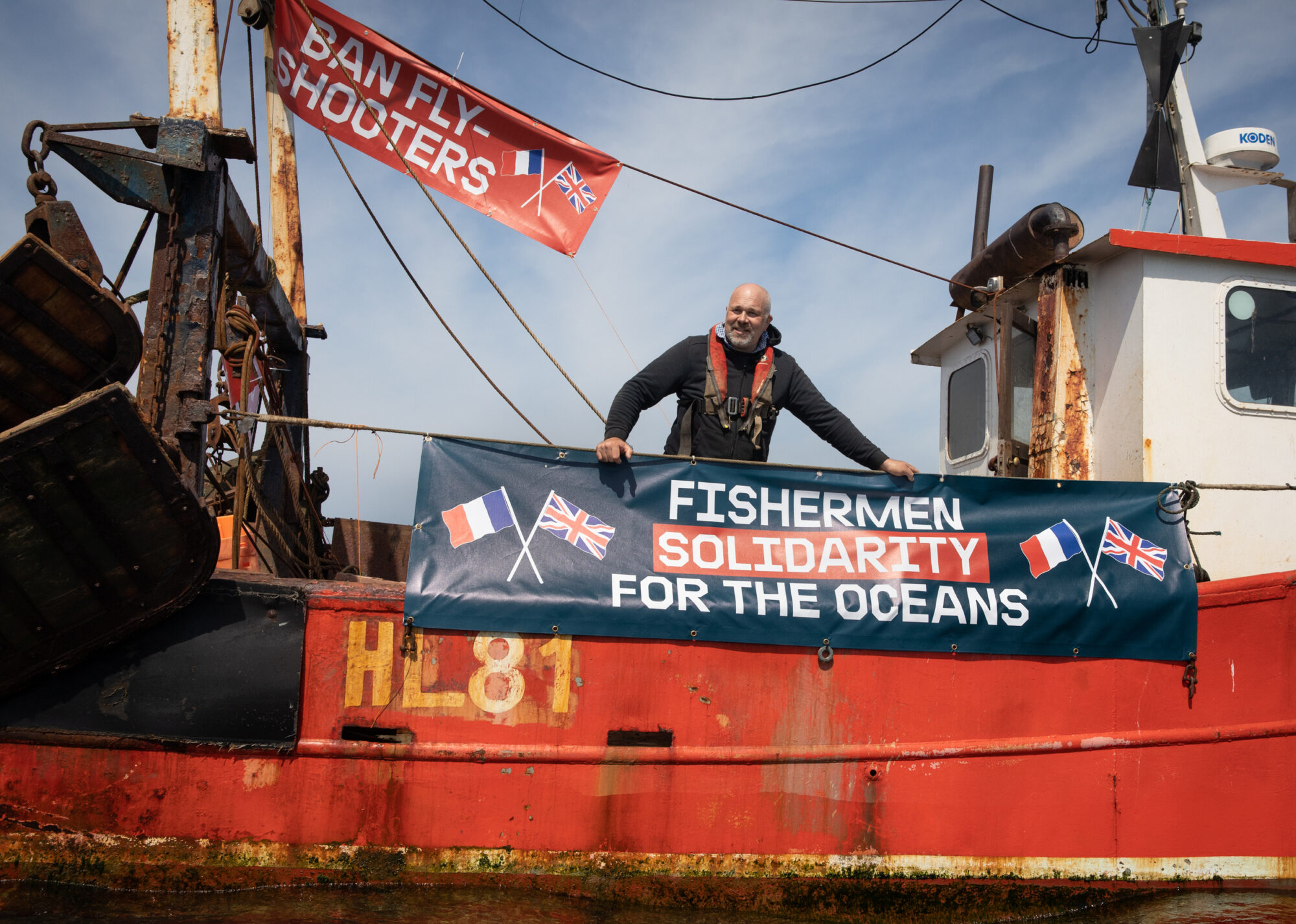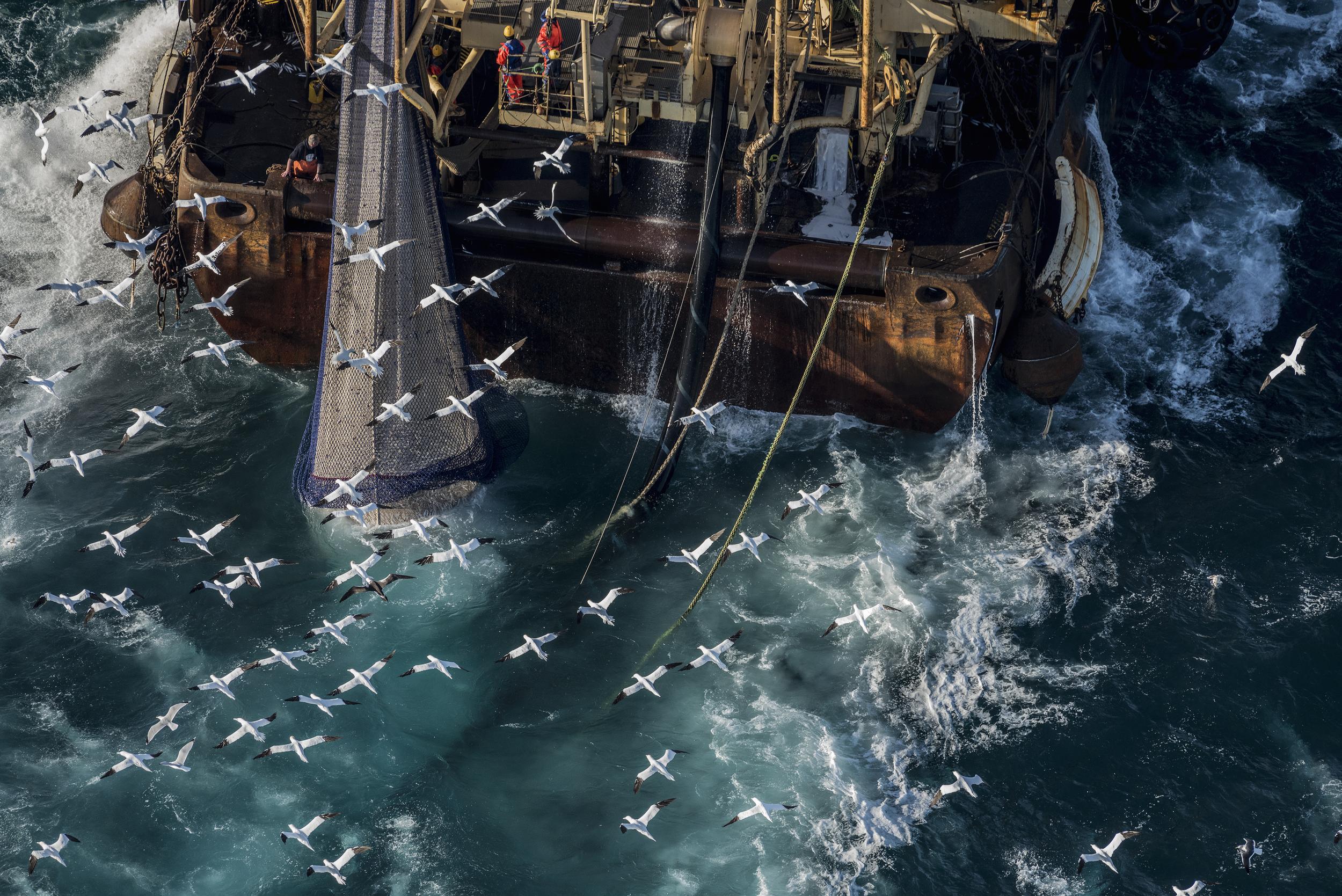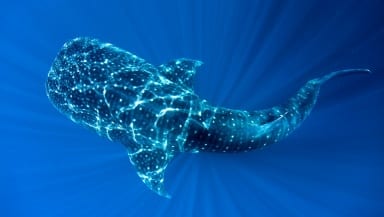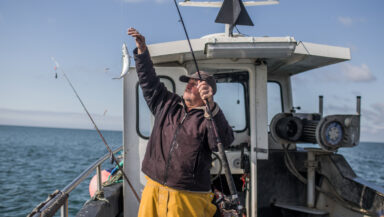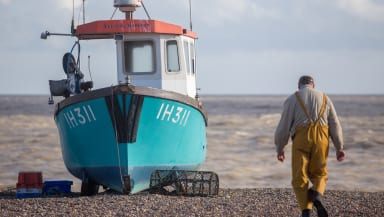In a historic moment, British and French fishermen united at sea in solidarity to say no to destructive industrial fishing. Over recent years, politicians have capitalised on tensions between British and French fishing communities to promote their Brexit agenda, with fishermen clashing in the Scallop war of 2018 and blocking the Channel as recently as 2021.
But after years of tensions running high, some French and English fishermen finally put aside their differences to unite behind a common call: for governments to properly protect our oceans before industrial fishing wrecks them for good.
Over the past year, local fishermen on both sides of the Channel noticed significant changes to the environment with an alarming change in fish numbers. Big business, industrial fishing and government complacency is destroying fish stocks, ocean wildlife and ecosystems. It’s also endangering livelihoods and gutting fishing communities, leaving local, small scale fishermen out to dry.
So today, fishing boats from the UK and France met halfway in the Bassurelle Sandbank marine protected area (MPA). The fishermen bridged the language gap between them by exchanging messages of solidarity across their decks and shared their experiences of how industrial fishing has ruined fishing livelihoods and coastal communities on both sides of the Channel. The boats displayed banners showing mutual solidarity and exchanged gifts to symbolise the new partnership between small-scale French and UK fishermen.

